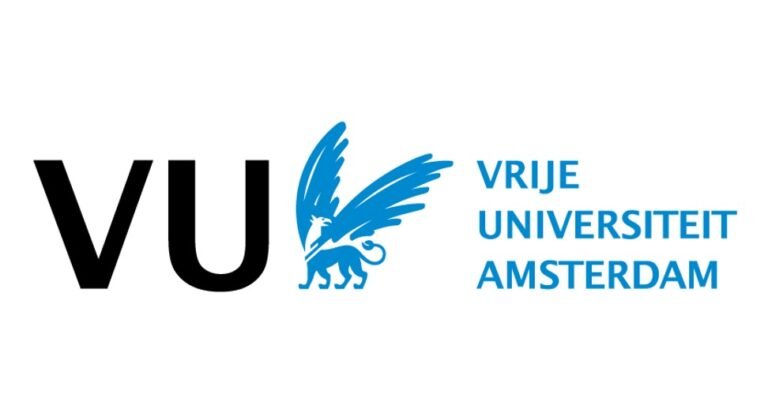The Department of Environmental Science is one of the biggest departments at the Faculty of Science. The department consists of four units with more than 170 researchers, teachers, doctoral students and technical/administrative staff from over 30 countries. Research and teaching focuses on chemical contaminants, atmospheric science, biogeochemistry and (eco)toxicology. As an employee at the Department of Environmental Science you will be part of a dynamic environment with research in leading research areas and with a strong international profile.
Research in atmospheric science unit focuses on the atmospheric composition and its impacts on climate and air quality. The majority of the research activities within the atmospheric science unit focus on understanding the life cycle and impact of aerosol particles and clouds.
More information about us, please visit: the Department of Environmental Science.
Project description
The interplay between atmospheric liquid or solid aerosol particles and clouds is a key theme in climate research. Aerosol particles originating from various natural and anthropogenic sources act as cloud condensation nuclei or ice nuclei for cloud droplets and ice crystals to form on. Consequently, the human influence on atmospheric aerosol loadings is likely to result in perturbations in the extent and properties of clouds. This effect is still poorly understood. Despite large efforts during past decades, the processes controlling aerosol-cloud interactions and explaining observed changes are not yet fully understood. The microphysical properties and chemical composition of aerosol particles, and their interaction with water vapour and meteorology represent a complex system with multiple simultaneous interactions. It is one of the major challenges of atmospheric science to understand this complex system and use it to improve predictions of future climate.
This PhD project aims to contribute to our understanding of the key processes governing the life cycle of aerosols and clouds, and their close interplay with atmospheric circulation, meteorology, water vapour and chemistry. The successful applicant will develop numerical modelling tools for describing atmospheric aerosol dynamics, chemistry and their links to cloud hydrometeor microphysics. This PhD project will contribute to the improvement of theoretical and numerical models describing aerosol dynamics, cloud microphysics and eventually the climate system by developing, testing and evaluating numerical schemes for models of varying levels of detail, including e.g. Large Eddy Simulation (LES) models and Earth System Models (ESM) along with detailed process models. The project is part of the SIMPLIFY project funded by the Knut and Alice Wallenberg foundation.
Qualification requirements
In order to be admitted to postgraduate education, the applicant must have the general and specific entry requirements. The qualification requirements must be met by the deadline for applications.
You meet general entry requirements if you have completed a second-cycle degree, or completed courses equivalent to at least 240 higher education credits, of which 60 credits must be in the second cycle, or have otherwise acquired equivalent knowledge in Sweden or elsewhere.
In order to meet the specific entry requirements, for doctoral studies in Environmental Science, at least 45 of the credits at the second cycle must be in one of the natural sciences (Biology, Chemistry, Earth Sciences, Physics, or Meteorology) including a 30 credits thesis project. The applicant should also have 30 credits in other natural science subjects different from the major.
Selection
The selection among the eligible candidates will be based on their ability to successfully pursue the research education. Special emphasis is put on the applicant’s knowledge and skills within the subject area, ability to express her/himself verbally and in writing, analytical aptitude, creativity, initiative and independence, and a capacity for working together with others. The evaluation will be made based on the relevance of past education and experience, grades from previous university courses (in particular at the advanced level), the quality and ambition of the independent project work, references, a cover letter motivating the candidate’s interest, and interviews. Prior experience in programming and numerical modelling is considered a merit.
Admission Regulations for Doctoral Studies at Stockholm University.
About the post
We offer a fixed-term employment as a doctoral student according to Chapter 5 of the Higher Education Ordinance (1993:100). The period of employment may not be longer than what corresponds to full-time doctoral education for four years. As a doctoral student, you should primarily devote yourself to your own doctoral education, but the employment may include work with education, research and administration to a limited extent (maximum 20 %).
A new employment as a doctoral student is for a maximum of one year, the employment is then renewed for a maximum of two years at a time.
Stockholm University strives to be a workplace free from discrimination and with equal opportunities for all.
Contact
For more information, please contact Professor Ilona Riipinen, ilona.riipinen@aces.su.se, phone: +46 73 585 92 51.
Union representatives
Saco-S, saco@saco.su.se, Fackförbundet ST/OFR, st@st.su.se, and SEKO, seko@seko.su.se.
PhD student representative, studentombud@sus.se.
Application
Apply for the PhD student position at Stockholm University’s recruitment system. It is the responsibility of the applicant to ensure that the application is complete in accordance with the instructions in the advertisement, and that it is submitted before the deadline.
Please include the following information with your application
- Your contact details and personal data
- Your highest degree
- Your language skills
- Contact details for 2–3 references
and, in addition, please include the following documents
- Cover letter motivating your interest for this position
- CV – degrees and other completed courses, work experience, and a list of degree projects/theses
- Degree certificates and grades confirming that you meet the general and specific entry requirements (no more than 6 files)
- Optional letters of recommendation (no more than 6 files)
- Degree projects/theses (no more than 6 files).
The instructions for applicants are available at: How to apply for a position.
You are welcome to apply!
Stockholm University contributes to the development of sustainable democratic society through knowledge, enlightenment and the pursuit of truth.
Closing date: 12/02/2025
URL to this page
https://www.su.se/english/about-the-university/work-at-su/available-jobs/phd-student-positions-1.507588?rmpage=job&rmjob=24854&rmlang=UK





